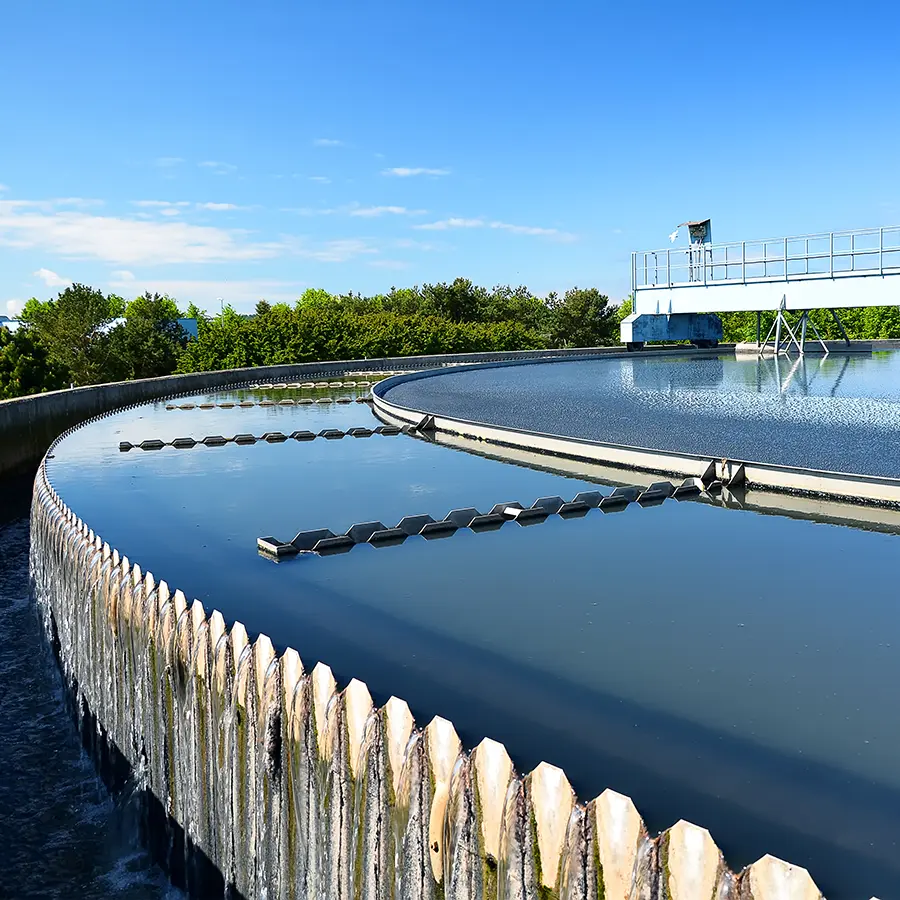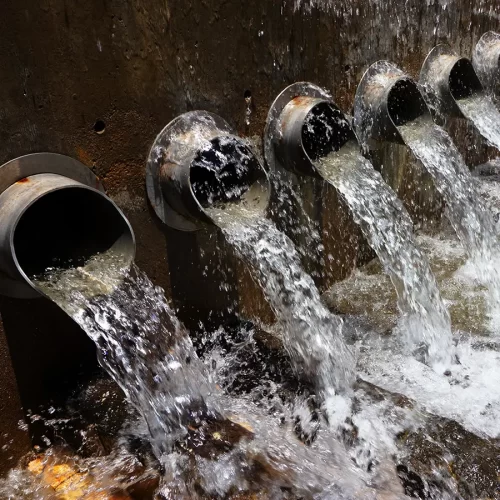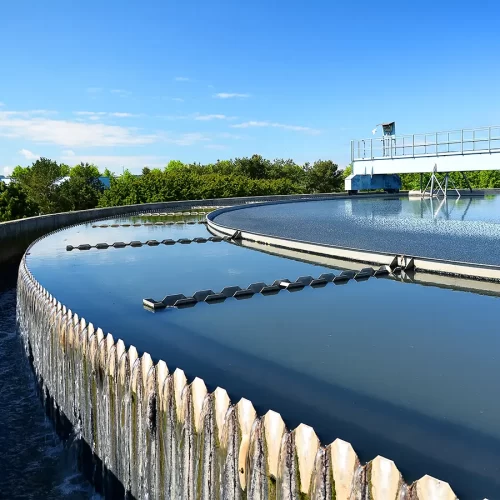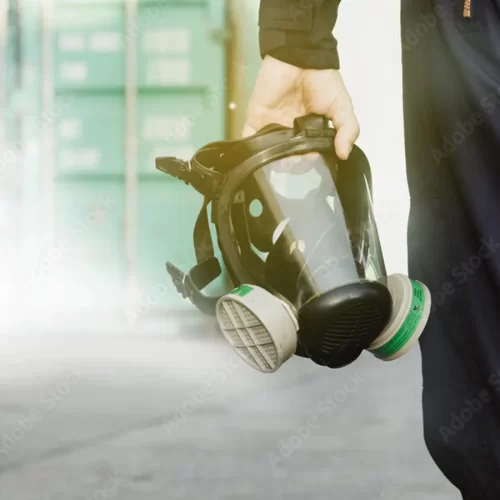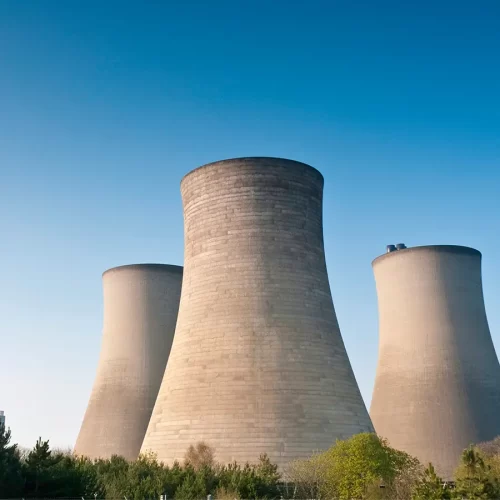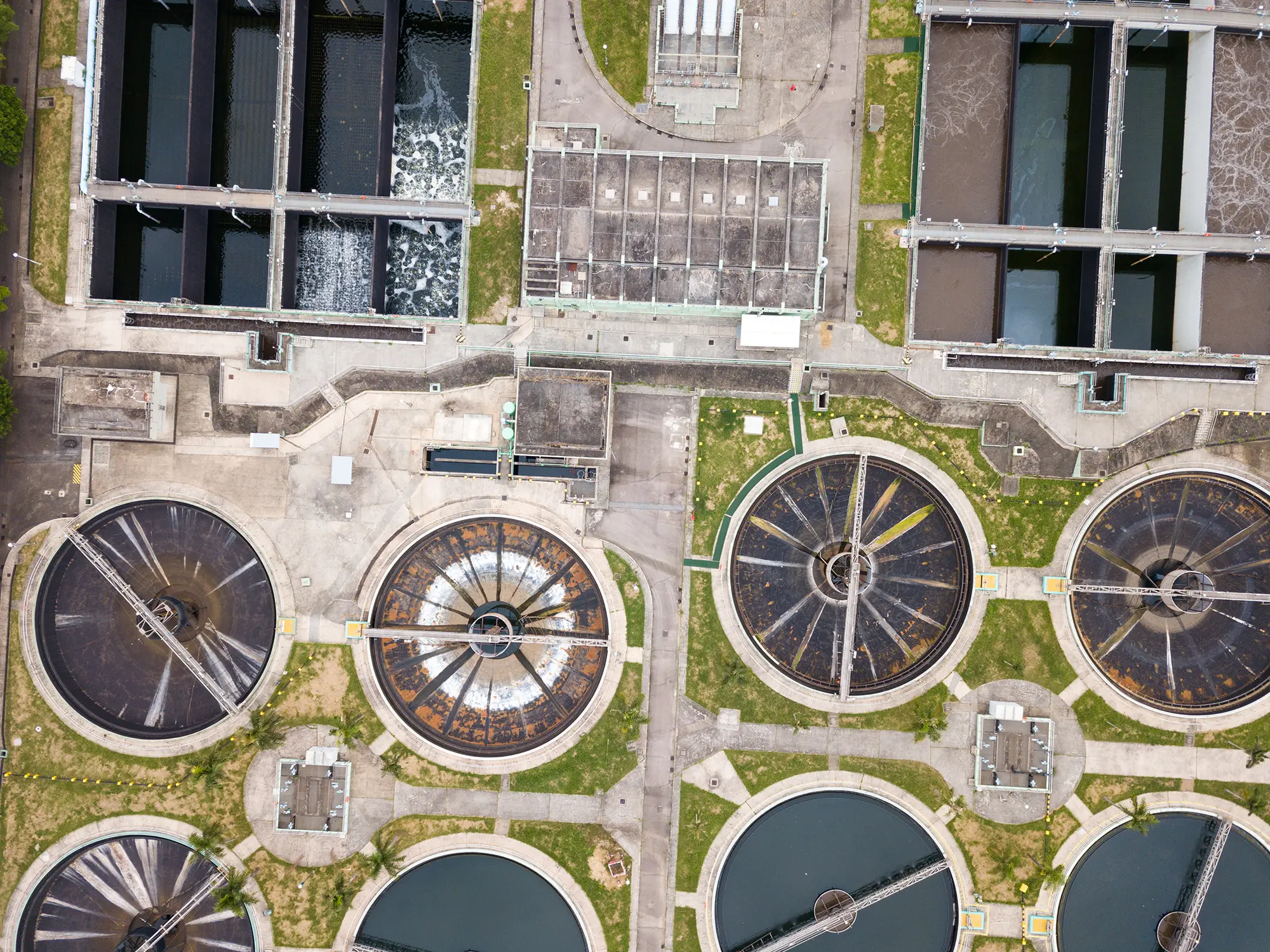Chlorine Dioxide solutions from Scotmas offer operators a unique opportunity to save costs while protecting the environment.
Cooling tower operators must ensure safety from bacterial infections such as Legionella while under pressure to reduce operating costs.
Biofilm buildup on condenser plates and cooling tower packs acts as an insulating layer, slowing down heat transfer, reducing water flow and increasing pumping costs, as well as being a harbour for dangerous legionella bacteria which live alongside scale, pseudomonas and other bacteria in a slimy layer found on plate surfaces and pipework.
Biofilm also poses a threat to asset integrity. Bacteria at the base layer of the film can create an anaerobic, corrosive environment and feed from plastic and metal structures, passing on nutrients to other nearby bacteria. This phenomenon, called biocorrosion, regularly leads to pack collapses and poor water flow throughout the tower, requiring expensive and disruptive pack changes and increased energy costs to pump water around the tower.
Scotmas Chlorine Dioxide solutions for cooling towers are designed to minimise these risks. Our online, fully automatic dosing systems add a controlled amount of chlorine dioxide sufficient to remove biofilm, keeping heat transfer surfaces clean and free of biofilm. Frictional losses and pumping costs are reduced, and ∆T has significant improvements.
Applied by your water treatment professional as part of a program of cooling tower hygiene, Scotmas Chlorine Dioxide solutions can be used in the smallest forced draft towers and wet chillers, typically used in the injection moulding and plastics extrusion industry, through to the largest industrial cooling networks such as found in power stations and petrochemical refineries.
